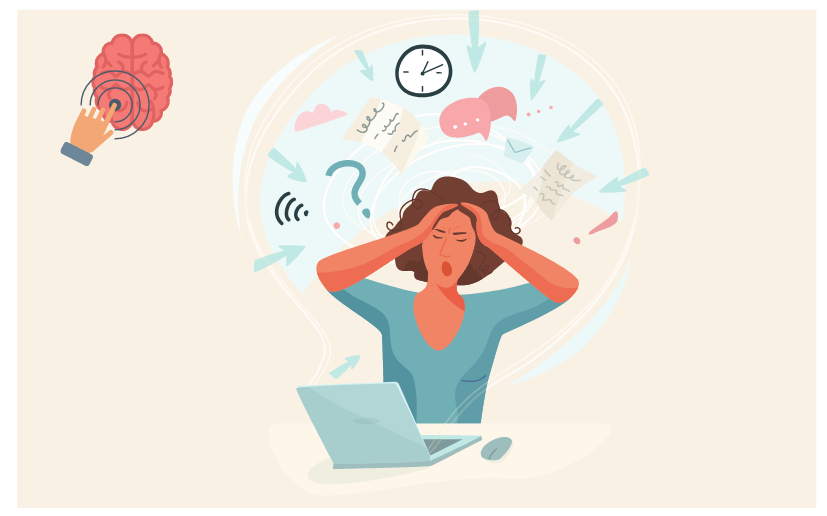Emotional Triggers
Introduction
It is easy to overlook the impact that emotional triggers can have on our mental wellness. But understanding and managing these triggers are key to achieving a state of true emotional well-being. In this article, we will check into the emotional triggers and explore their influence on our mental health.
Understanding Emotional Triggers
Emotional triggers are stimuli that elicit strong emotional reactions within us. They can range from certain situations, events, or even specific words or actions. These triggers have the power to activate unresolved emotional wounds and can often catch us off guard.

Understanding our emotional triggers is crucial to unraveling our emotions and addressing the root causes of our mental well-being challenges.
To truly comprehend the impact of emotional triggers, we must first acknowledge that our past experiences play a significant role in shaping our emotional responses.
Traumatic events, childhood experiences, and even societal conditioning can all contribute to the formation of our triggers. By examining our triggers with curiosity and compassion, we can gain valuable insights into ourselves and begin the journey towards healing and emotional growth.
The Impact of Emotional Triggers on Mental Wellness
Emotional triggers can have a big impact on our mental wellness. When triggered, we may experience a range of intense emotions such as anger, fear, sadness, or anxiety.
These emotions can be overwhelming and may lead to unhealthy coping mechanisms, like avoidance or substance abuse. Over time, if left unaddressed, emotional triggers can contribute to chronic stress, depression, or anxiety disorders.
Furthermore, emotional triggers can interfere with our ability to form and maintain healthy relationships. They can cause us to react impulsively, lash out, or withdraw, creating barriers to effective communication and connection. By understanding and working through our emotional triggers, we can pave the way for healthier and more fulfilling relationships.

Common Emotional Triggers and Their Effects
Emotional triggers can manifest in various forms, and their effects can vary from person to person. Some common emotional triggers include rejection, criticism, abandonment, failure, and loss. For example, someone who experienced rejection in the past may become triggered when faced with situations that evoke feelings of rejection, such as not being invited to a social event or receiving negative feedback at work.
The effects of emotional triggers can be both physical and emotional. Physically, triggers can lead to increased heart rate, muscle tension, headaches, or stomachaches.
Emotionally, triggers can cause feelings of shame, guilt, sadness, or even a sense of helplessness. It’s essential to identify and understand our specific triggers to develop effective coping strategies.
Recognizing and Identifying Your Own Emotional Triggers
Recognizing and identifying our own emotional triggers is a crucial step towards emotional well-being. It requires self-reflection, self-awareness, and a willingness to explore our past experiences. To begin this process, it can be helpful to keep a journal or engage in therapy to uncover patterns and gain insights into our triggers.
Ask yourself questions like: What situations or events elicit a strong emotional response from me? Are there certain words or actions that consistently trigger me? Pay attention to your physical and emotional reactions when confronted with potential triggers. By becoming more attuned to our triggers, we can gain a clearer understanding of our emotional landscape and take proactive steps towards healing.
Strategies for Managing Emotional Triggers
Managing emotional triggers requires a multi-faceted approach that combines self-awareness, self-care, and effective coping strategies. Here are some strategies that can help you navigate and manage your emotional triggers:
- Mindfulness and grounding techniques: Practice mindfulness meditation and grounding exercises to help you stay present and centered when triggered.
- Breathing exercises: Deep breathing exercises can help regulate your emotions and reduce the intensity of your triggers.
- Cognitive-behavioral techniques: Challenge negative thought patterns and replace them with more positive and empowering thoughts.
- Self-compassion: Cultivate self-compassion and self-acceptance to counteract the negative effects of triggers.
- Setting healthy boundaries: Learn to assertively communicate your needs and set boundaries to protect yourself from triggering situations or people.
Remember, managing emotional triggers is an ongoing process that requires patience, practice, and self-compassion. Be kind to yourself as you navigate this journey towards emotional well-being.

Self-care Practices for Emotional Well-being
In addition to managing triggers, it’s important to prioritize self-care to maintain emotional well-being. Engaging in regular self-care practices can help reduce stress, promote relaxation, and increase resilience.
Here are some self-care practices that can support your emotional well-being: Physical exercise, Healthy eating, Quality sleep, Creative outlets, Social support. Remember, self-care is not a luxury but a necessity when it comes to maintaining emotional well-being. Make it a priority in your daily life.
Seeking Professional Help for Managing Emotional Triggers
While self-help strategies can be effective, there may be instances where seeking professional help is necessary. Therapists, counselors, or psychologists can provide valuable support and guidance in managing emotional triggers. They can help you explore the root causes of your triggers, develop coping strategies, and provide a safe space for healing and growth.
Therapy modalities such as cognitive-behavioral therapy (CBT), eye movement desensitization and reprocessing (EMDR), or dialectical behavior therapy (DBT) can be particularly helpful in addressing emotional triggers.
Remember, reaching out for professional help is a sign of strength and a proactive step towards taking control of your emotional well-being.
The Role of Therapy in Addressing Emotional Triggers
Therapy can play a pivotal role in addressing emotional triggers and promoting overall mental wellness. Through therapy, you can explore the underlying causes of your triggers, gain insight into your emotional patterns, and develop effective coping strategies. Therapists provide a safe and non-judgmental space for you to process your emotions, heal past wounds, and work towards personal growth.
It’s important to find a therapist who specializes in trauma, triggers, or the specific challenges you’re facing. Research different therapy approaches and find a therapist with whom you feel comfortable and supported. Remember, therapy is a collaborative process, and finding the right therapist is crucial for your healing journey.
Creating a Support Network for Emotional Support
Building a support network is essential for managing emotional triggers. Surrounding yourself with understanding and empathetic individuals can provide the emotional support you need when facing triggers. Here are some tips for creating a support network:
- Seek out like-minded individuals: Join support groups, online communities, or local organizations that focus on mental health and emotional well-being.
- Share your experiences: Open up to trusted friends or family members about your triggers and challenges. Sharing your experiences can foster understanding and create a supportive environment.
- Consider group therapy: Group therapy can offer a safe space to connect with others who are facing similar challenges. It provides an opportunity to share experiences, gain insights, and learn from one another.
Remember, you don’t have to face your triggers alone. Building a support network can provide a sense of belonging, validation, and encouragement on your journey towards emotional well-being.
Conclusion: Empowering Yourself to Overcome Emotional Triggers
Emotional triggers can significantly impact our mental wellness, but they don’t have to control our lives. By understanding, identifying, and managing our triggers, we can empower ourselves to overcome the challenges they present. Through self-reflection, self-care, therapy, and the support of others, we can learn to navigate our triggers with resilience and grace.
Remember, the journey towards emotional well-being is unique to each individual. Be patient with yourself, celebrate your progress, and reach out for help when needed.
By taking proactive steps towards managing your emotional triggers, you can unlock the key to true mental wellness and live a more fulfilling life. Embrace this opportunity for growth and transformation, and let it guide you towards a brighter, more resilient future.
Sources


